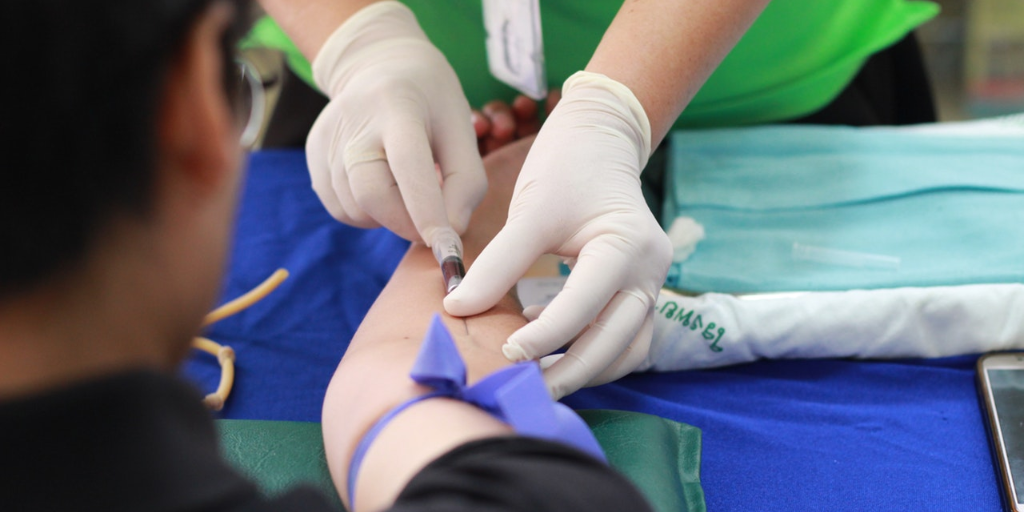The race is on to develop a vaccine against the deadly coronavirus
Hi there one again, I’m Jeff, alongside the producer JR, and this is episode 230 of Plain English. You can find all the episode resources for this episode of PlainEnglish.com/130.
Coming up today: the deadly coronavirus that broke out in the Chinese city of Wuhan has researchers scrambling for a vaccine. But if history is any guide, that could be several years off. Plus, we’ll talk about what it means to put something in perspective.
Race for a coronavirus vaccine
Drugmakers around the world are scrambling to develop a vaccine for the deadly coronavirus. The virus first appeared in a meat-and-fish market in the Chinese city of Wuhan and has since infected hundreds of people, killing dozens. Cases have been discovered in nearby countries and as far away as the United States. Governments are working urgently to contain the spread of the virus. In China, transportation into and out of the city of Wuhan is restricted and airports are performing strict screenings of passengers from that area. The current epidemic has echoes of previous epidemics like SARS and avian flu.
A variety of companies and non-profits have begun work on developing a vaccine; some of these efforts are private, while others are government-led. A Norwegian nonprofit called the Coalition for Epidemic Preparedness has given $11 million to two biotech firms and one university, alongside an ambitious challenge: to develop a vaccine in just 16 weeks.
To put that in perspective, vaccines for new viruses usually take years to develop. The only approved vaccine for the Ebola virus was developed by the Public Health Agency of Canada and Merck, a big drugmaker. It took two years to be proven 95% effective.
The companies working on the coronavirus vaccine expect that they might have a vaccine ready for human trials in a few months. It would take much longer for a vaccine to be approved for widespread use.
The new virus belongs to a family of viruses that also includes severe acute respiratory syndrome, or SARS, which struck in 2002, and Middle East respiratory syndrome, or MERS, which struck ten years later. There are no currently vaccines for either SARS or MERS. A SARS vaccine was developed quickly in 2003, but has been discontinued since that virus has not re-appeared in years. The information from the development of that vaccine will give researchers a head start on their work now.
There are other reasons to be hopeful. Vaccine technology has improved in the almost two decades since the SARS virus broke out. For much of history, vaccines have been weakened or slightly modified versions of the disease itself. The purpose of those vaccines is to train a patient’s immune system to fight a similar-looking virus, so that it knows to fight the real one if it arrives.
Today, one of the biotech firms is trying a new approach, via DNA. With DNA vaccines, researchers are trying to discover how human DNA fights the virus. The vaccine will then pre-empt the virus by prompting the patient’s body to over-produce the proteins that can fight off the virus. This is the approach that one drug company used to develop a vaccine against the Zika virus.
This approach has one key advantage: Researchers don’t need a sample of the virus to perform their work. Passing samples around has its limitations: enough samples have to be collected—safely—and then they have to be transported and tested in laboratories. With DNA vaccines, researchers can study the publicly-available genetic sequence without needing a sample of the virus. The resulting vaccine won’t contain the virus, which should make trials safer and improve the vaccine’s effectiveness.
But DNA vaccines are still in their early days. No DNA vaccine has been approved in the United States, admittedly one of the world’s strictest approvers of drugs. But they haven’t been tested on a large enough population to prove their effectiveness in a real-world epidemic.
Developing a vaccine is just one piece of the puzzle. Governments and drug companies have to weigh the urgent need for a vaccine against the imperative to perform extensive testing to make sure it’s safe. Once a vaccine has been approved for wider distribution, it has to be manufactured in large enough quantities. While manufacturing is ramping up, governments have to decide who gets the amount that is available; front-line health care workers are usually first in line.
In the absence of a vaccine, health systems have to focus on containing the virus’s spread. That starts in hospitals. Health departments around the world are issuing guidance to doctors and nurses with strict protocol to follow if someone shows symptoms of the virus. Hospitals are establishing isolation rooms, strengthening their infection-prevention procedures, and educating the doctors and nurses on the front line about the symptoms of the disease.
We’d love to know what you think of the program! JR and I have posted a listener survey online, which you can take at PlainEnglish.com/survey . It’s not only a great way to help us out, but it’s also a good way to practice you reading and writing.
As a special thank-you for your time, we’ll give you access to a free video lesson from me. You’ll get that as soon as you press “submit.” So help us out, go to PlainEnglish.com/survey.
Great stories make learning English fun

